How to Find the Best African Grey Parrot Price Today
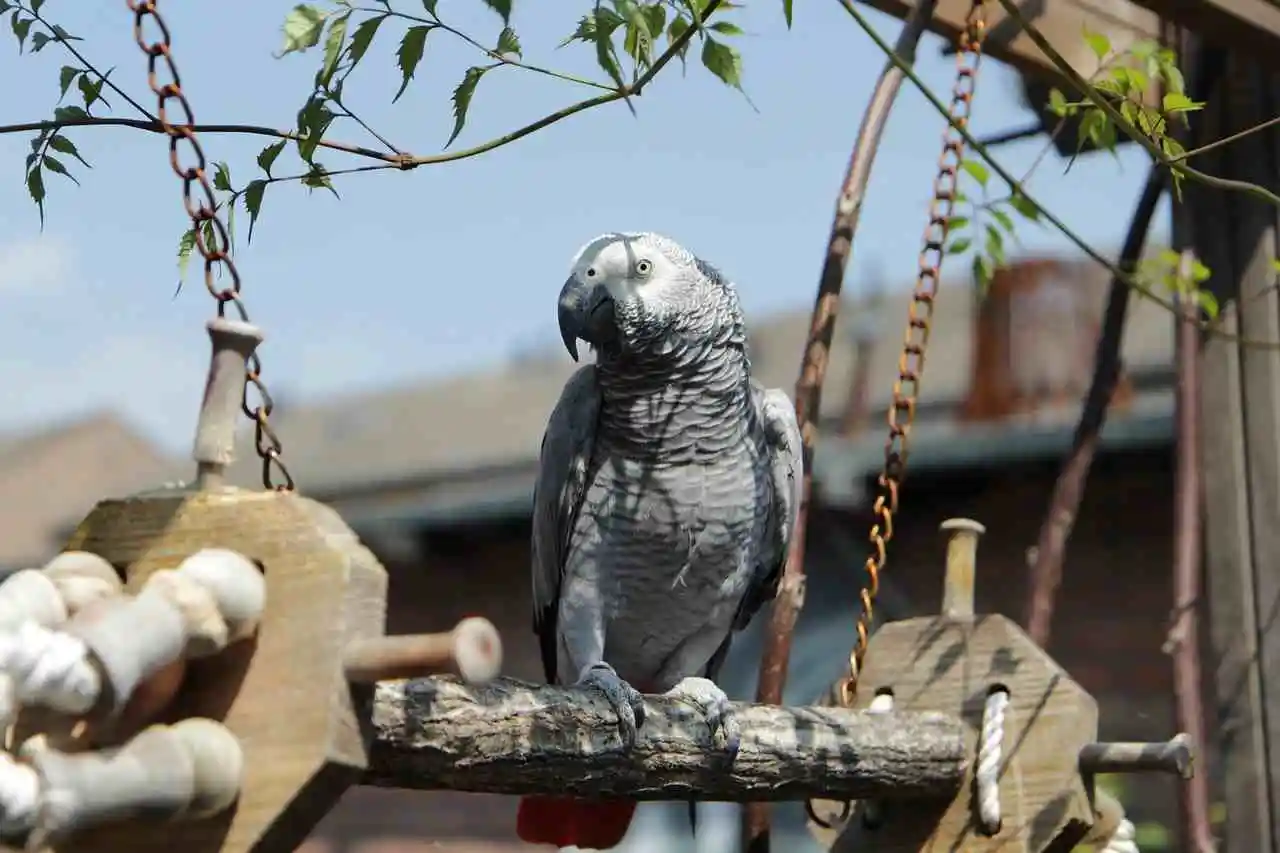
Table of Contents
Introduction
Thinking of bringing an African Grey Parrot into your life? One of the first questions is, of course: How much will it cost?
African Grey Parrots are renowned for their remarkable intelligence, impressive speaking abilities, and charming personalities. Often compared to the cognitive abilities of a five-year-old child, these magnificent birds have captured the hearts of bird enthusiasts worldwide. Their popularity, however, comes with a significant financial commitment that extends far beyond the initial purchase price.
In this comprehensive guide, we’ll explore everything you need to know about African Grey Parrot prices. We’ll break down the factors that influence the cost, where to find reputable sellers, hidden expenses of ownership, and how to avoid common scams in the marketplace.
Let’s dive in and explore the factors that influence the price of these intelligent and captivating birds.
Average Price Range for African Grey Parrots
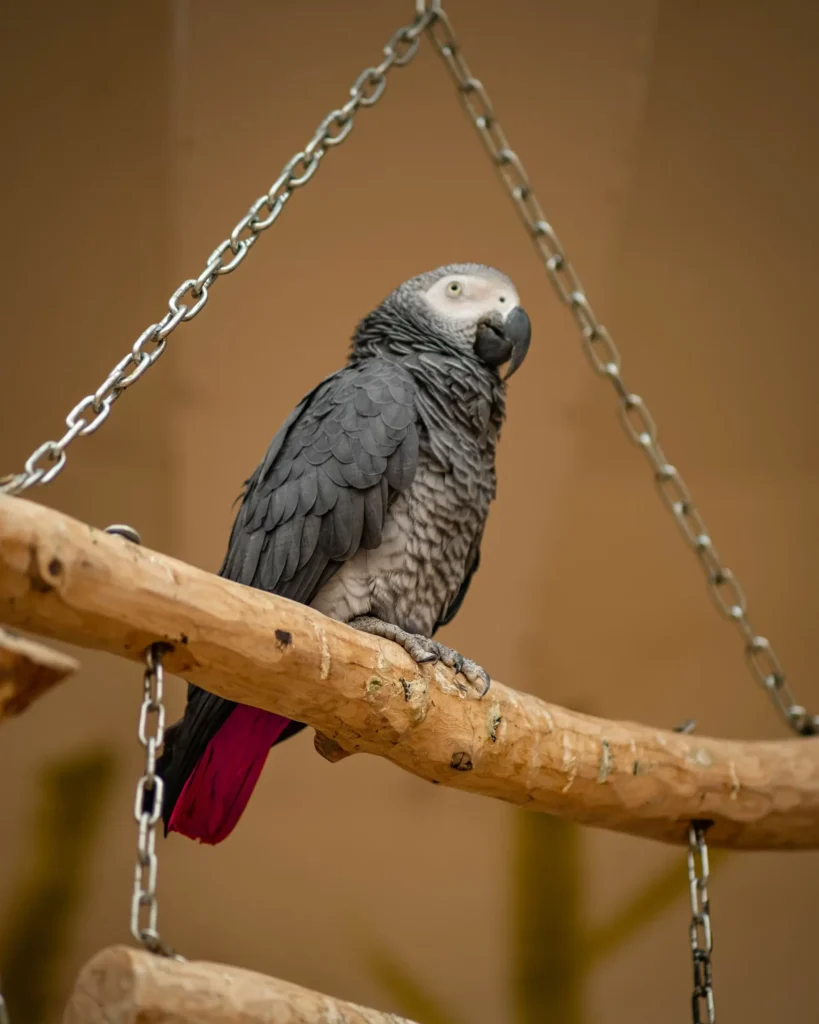
When budgeting for an African Grey Parrot, expect to pay between $2,000 and $4,000 USD for a baby (under 1 year old). Adult African Greys typically range from $1,500 to $3,000 USD, depending on age, training, and temperament.
Quick Price Guide:
- Baby African Grey Parrot (hand-fed): $2,000-$4,000 USD
- Adult African Grey Parrot: $1,500-$3,000 USD
- Adoption/Rescue: $500-$1,500 USD (varies by organization)
Keep in mind that these prices reflect healthy birds from reputable sources. If you see prices significantly lower than these ranges, proceed with caution—it might be a warning sign of poor breeding practices or potential scams.
Factors Affecting African Grey Parrot Price
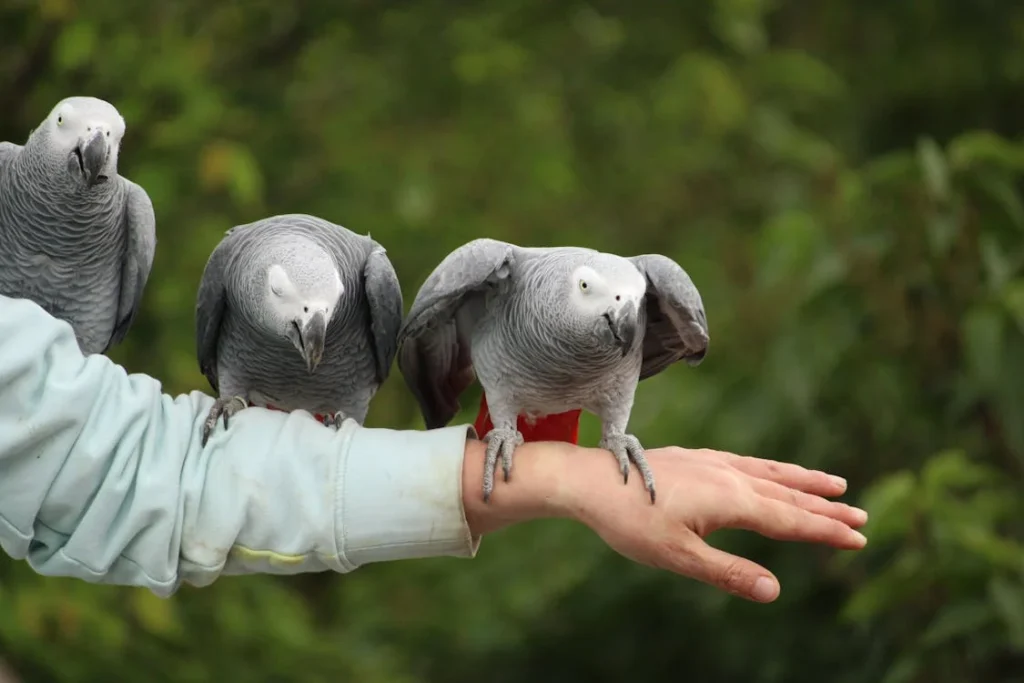
Several key factors influence the cost of an African Grey Parrot. Understanding these elements will help you make an informed decision and recognize when a price is fair or inflated.
Age
Baby African Grey Parrots (under 1 year) typically command the highest prices. There are several reasons for this:
- They have their full lifespan ahead (40-60+ years)
- They can bond more easily with new owners
- They haven’t developed behavioral issues from previous environments
Adult African Grey Parrots are generally less expensive but can still be quite costly if they’re well-trained and socialized. An adult bird with a gentle temperament and speaking abilities might cost nearly as much as a baby bird.
Subspecies
There are two main subspecies of African Grey Parrots, each with a different price range:
| Subspecies | Description | Average Price Range |
|---|---|---|
| Congo African Grey (CAG) | Larger body, light gray plumage, bright red tail | $2,200-$4,000 USD |
| Timneh African Grey (TAG) | Slightly smaller, darker gray plumage, maroon tail | $1,800-$3,500 USD |
Congo African Greys are typically more expensive due to their larger size and higher popularity among bird enthusiasts.
Breeder Reputation
Purchasing from a reputable breeder significantly impacts the price—and for good reason. Ethical breeders invest in:
- Proper nutrition for breeding pairs
- Genetic testing to prevent hereditary issues
- Proper socialization of baby birds
- Clean, spacious breeding facilities
- Health guarantees and support
A higher price from a reputable breeder often means a healthier, well-adjusted bird and peace of mind for you. Many provide health certificates, genetic testing results, and ongoing support after purchase.
Health and Genetics
Birds with health certifications from avian veterinarians will cost more than those without verified health status. Some breeders invest in:
- DNA testing to confirm gender
- Testing for common avian diseases
- Genetic screening for hereditary conditions
- Regular health check-ups with avian specialists
These investments ensure you’re getting a healthy bird but increase the breeder’s costs, which are reflected in the price.
Hand-Fed vs. Parent-Raised
Hand-fed baby African Grey Parrots generally cost more than parent-raised birds. Hand-feeding involves:
- Human caregivers feeding the chick multiple times daily
- Regular human interaction from a young age
- More intensive time investment from the breeder
This process typically results in birds that are more comfortable with human handling and form stronger bonds with their owners.
Training and Temperament
African Grey Parrots with basic training command higher prices:
- Birds that step up on command
- Parrots comfortable with handling
- Birds already familiar with cages, toys, and human environments
- Parrots that have begun developing speech abilities
A well-socialized, friendly African Grey with some vocabulary can cost $500-$1,000 more than an untrained bird of the same age.
Location
Geographic location significantly impacts African Grey Parrot prices:
- Urban areas with higher costs of living typically have higher parrot prices
- Regions with few breeders see increased prices due to scarcity
- Areas with strict exotic pet regulations may have higher prices due to compliance costs
- Transport costs for importing birds from other regions add to the price
For example, prices in California or New York may be 20-30% higher than in rural Midwestern states.
Availability
African Grey Parrots are not as readily available as some other pet birds, which affects their price:
- Breeding seasons create cycles of availability
- Responsible breeders limit the number of clutches per year
- International trade restrictions have reduced overall availability
- Conservation status as vulnerable species limits commercial breeding
When demand exceeds supply, prices naturally increase.
Accessories Included
Some sellers include basic supplies with the purchase of an African Grey Parrot:
- Starter cage
- Food and water dishes
- Initial food supply
- Basic toys
- Travel carrier
These inclusions may add value but ensure you’re getting quality items rather than items that you’ll need to replace immediately.
Where to Buy African Grey Parrots
Reputable Breeders
Specialized avian breeders are typically the most reliable source for healthy African Grey Parrots. When evaluating a breeder:
Questions to ask:
- How long have you been breeding African Greys?
- Can I tour your facility?
- What health guarantees do you offer?
- What diet do you feed your birds?
- How do you socialize your baby birds?
- Can you provide references from previous customers?
Red flags to watch for:
- Reluctance to show you their breeding facility
- No health guarantees
- Significantly lower prices than market average
- Unwillingness to answer detailed questions
- Poor conditions for birds
- Pressure tactics to make a quick sale
Adoption and Rescue Organizations
Adopting a rescue African Grey Parrot is an excellent option that typically costs less while giving a deserving bird a second chance:
Benefits of adoption:
- Lower cost (typically $500-$1,500 USD)
- Saving a bird in need
- Adult birds with established personalities
- Medical history and behavioral assessment usually provided
- Support from rescue organization staff
Pet Stores (with Caution)
Some specialty pet stores sell African Grey Parrots, but quality and ethics vary widely:
Pros:
- Convenience
- Possible veterinary partnerships
- Potential for seeing the bird before purchase
Cons:
- Often higher prices for the same quality
- Limited knowledge of bird backgrounds
- Variable care standards
- Possible support for less ethical breeding operations
If considering a pet store, research their reputation thoroughly and ensure they partner with reputable breeders.
Online Marketplaces (with Warnings)
Online listings can connect you with legitimate sellers but carry significant risks:
Safety tips:
- Never send money without seeing the bird in person
- Always verify the seller’s identity and reputation
- Request video calls to see the bird and facilities
- Look for detailed descriptions and honest disclosure of any issues
- Check for proper documentation (CITES permits, health certificates)
- Trust your instincts—if something feels wrong, walk away
Common online scams:
- Prices far below market rates
- Sellers refusing video calls or in-person meetings
- Requests for unusual payment methods
- Pressure to make quick decisions
- Too-good-to-be-true shipping arrangements
Hidden Costs of Ownership
The purchase price is just the beginning of your financial commitment to an African Grey Parrot.
Cage and Accessories
A proper cage for an African Grey Parrot is a significant investment:
- Quality cage: $500-$1,000 USD
- Perches (various textures and sizes): $50-$100 USD
- Food and water dishes: $30-$50 USD
- Initial toy set: $100-$200 USD
- Play gym/stand: $100-$300 USD
Total initial setup: Approximately $800-$1,650 USD
Food
African Grey Parrots require a varied, high-quality diet:
- Premium pellet food: $30-$50 per month
- Fresh fruits and vegetables: $40-$60 per month
- Nuts and seeds (in moderation): $20-$30 per month
- Supplements (calcium, vitamins): $15-$25 per month
Annual food cost: Approximately $1,260-$1,980 USD
Veterinary Care
Regular avian veterinary care is essential and costly:
- Annual wellness exam: $100-$200 USD
- Routine blood work: $150-$300 USD
- Wing trims (if necessary): $20-$40 USD per trim
- Emergency fund: Minimum $1,500 USD recommended
- Potential specialized treatments: $500-$3,000+ USD
Annual basic veterinary cost: Approximately $300-$600 USD (not including emergencies)
Insurance
Pet insurance for exotic birds is available but limited:
- Annual premiums: $200-$500 USD
- Coverage varies widely: Research policies carefully
- Typical exclusions: Pre-existing conditions, certain genetic issues
Enrichment
African Grey Parrots require constant mental stimulation:
- Replacement toys: $30-$50 USD monthly
- Foraging toys and puzzles: $150-$300 USD annually
- Training materials: $50-$100 USD
- Potential professional training sessions: $50-$100 USD per session
Annual enrichment cost: Approximately $560-$1,000 USD
Travel and Boarding
When you travel without your bird:
- Avian boarding facilities: $25-$50 USD per day
- In-home pet sitter: $50-$100 USD per day
- Travel carrier (for vet visits): $50-$150 USD one-time purchase
Negotiating the Price
While African Grey Parrot prices are generally firm, some negotiation may be possible:
- Research thoroughly: Know the average prices in your area before making offers
- Ask about package deals: Some breeders may include supplies or initial vet visits
- Consider older birds: Juvenile (not baby) birds may be less expensive but still adaptable
- Ask about payment plans: Some reputable breeders offer financing options
- Adoption alternative: Consider the adoption route for significant savings
Remember that extremely low prices often indicate problems. Focus on value rather than finding the absolute lowest price.
Scams and Red Flags to Avoid
Protect yourself from common African Grey Parrot scams:
Price Red Flags
- Prices under $1,000 USD for a baby African Grey (unusually low)
- Sellers willing to ship birds without proper documentation
- “Bargain” birds without health guarantees
- Dramatic discounts for immediate payment
Seller Red Flags
- Reluctance to answer detailed questions about the bird’s background
- No health testing or certificates
- Unwillingness to provide references
- Poor care conditions visible in photos or videos
- Pressure tactics or rushing the sale
Payment Red Flags
- Requests for wire transfers or cryptocurrency
- No written contract or receipt
- Refusal to accept secure payment methods
- Demands for large deposits without protections
Local Price Variations
African Grey Parrot prices vary significantly by region. Here’s what influences local pricing:
- Urban vs. Rural: Prices in major metropolitan areas can be 20-30% higher than rural areas
- Regional Breeder Density: Areas with few breeders see higher prices
- State/Local Regulations: Stricter exotic pet laws can increase prices
- Transport Costs: Importing birds from other regions adds cost
- Local Demand: High-demand areas command premium prices
Research breeders, rescues, and avian veterinarians in your specific location to get the most accurate pricing information.
Frequently Asked Questions

What is the average lifespan of an African Grey Parrot?
African Grey Parrots typically live 40-60+ years in captivity with proper care. This long lifespan makes them a multi-decade commitment, requiring careful consideration before purchase.
Are African Grey Parrots good pets for beginners?
African Grey Parrots are generally not recommended for first-time bird owners. Their high intelligence, sensitivity, and complex care needs make them better suited for experienced bird keepers who understand parrot behavior and requirements.
How much does it cost to feed an African Grey Parrot?
Expect to spend $100-$150 USD monthly on a proper diet for an African Grey Parrot. This includes high-quality pellets, fresh fruits and vegetables, occasional nuts, and necessary supplements.
Do African Grey Parrots need a lot of attention?
Yes, African Grey Parrots require several hours of interaction daily. They are highly social birds that can develop behavioral problems, including self-destructive behaviors, if left alone for extended periods. Working owners should plan for enrichment during absences.
Are African Grey Parrots loud?
While not as loud as some larger parrots like Macaws, African Grey Parrots can make significant noise. They are vocal birds that communicate through calls, whistles, speech, and occasional screaming, particularly during morning and evening hours.
Conclusion
Bringing an African Grey Parrot into your home is a significant financial commitment that extends far beyond the initial purchase price. With costs ranging from $2,000 to $4,000 for a baby bird, plus annual expenses of $2,000+ for proper care, these intelligent companions represent a substantial investment.
Remember that the true cost of an African Grey Parrot includes not just money but also time, attention, and emotional commitment. These birds can live for 40-60+ years, making them lifetime companions that require consistent, quality care throughout their lives.
Ready to find your perfect feathered friend? Start your search by contacting reputable breeders, rescue organizations, and avian vets in your area. Take your time with this important decision, and prioritize ethical sources that prioritize bird welfare over profit.
Disclaimer: This article is for informational purposes only. Prices may vary by location, individual breeder, and market conditions. Always research thoroughly before purchasing any pet.

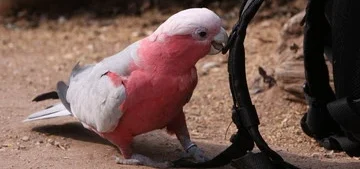
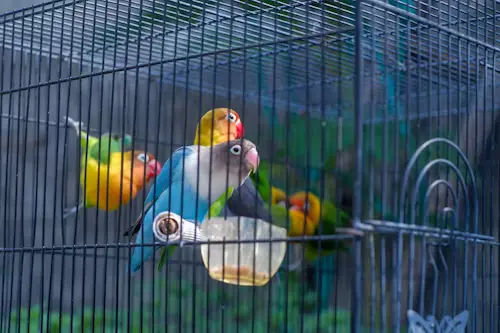

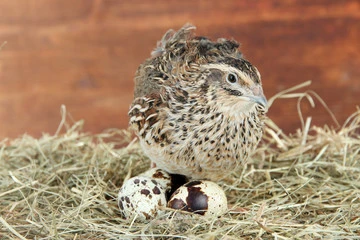
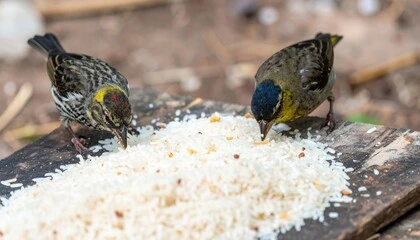

7 Comments